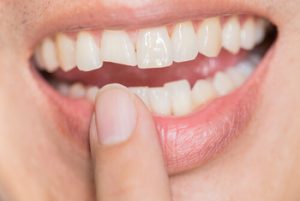Dental veneers are thin, bespoke shells made to cover the front surface of teeth, enhancing their appearance. These shells are bonded to the teeth, changing their colour, shape, size, or length. So, you may ask, how many veneers do I need? Understanding how many veneers you need is crucial to achieving the desired aesthetic outcome and ensuring that your smile looks natural and symmetrical.
Assessment of Dental Needs
- The Extent of Dental Issues: Discolouration, chips, and gaps can affect how many veneers are required.
- Aesthetic Goals: Depending on whether you desire a subtle improvement or a complete smile makeover, the number of veneers will vary.
- Symmetry and Balance: For a natural smile that enhances your facial features, veneers should be placed strategically across visible teeth to create balance.
Types of Veneers
There are primarily two types of tooth veneers: porcelain veneers and resin composite veneers. Porcelain veneers are favoured for their strength and capacity to replicate the light-reflecting qualities of natural teeth.
Resin composite veneers are less expensive but not as durable. The choice between these types can influence how many porcelain veneers or composite ones you might need.
Veneers for Aesthetic Improvement
For those looking to enhance their smile:
- Single Veneer: A single porcelain veneer may be sufficient if only one tooth is damaged or discoloured.
- Multiple Veneers: Often, six to eight veneers are needed for a harmonious look, as they allow for uniform colour and shape across all visible teeth when you smile.
- Achieving Symmetry: It’s sometimes necessary to opt for more veneers to ensure that both sides of your smile match perfectly, especially if the natural teeth show variations that affect aesthetic symmetry.
Veneers for Dental Corrections
Veneers also serve as a quick fix for minor orthodontic problems:
- Closing Gaps: Veneers can be designed to close spaces between your teeth, often eliminating the need for braces.
- Correcting Misalignments: For slightly crooked teeth, veneers can make them appear straighter without the need for more invasive procedures.
- Replacement Needs: If you have old or damaged veneers, replacing them might require adjusting the number of veneers to ensure the new ones blend seamlessly with any existing dental work.
Maintenance and Care
Maintaining dental veneers is crucial for ensuring their longevity and preserving a healthy smile. Like natural teeth, veneers require diligent care, which involves a series of practices tailored to maintain both their appearance and function.
Oral Hygiene
Effective oral hygiene is the cornerstone of veneer maintenance. It’s essential to brush at least twice a day using a non-abrasive toothpaste and a soft-bristled toothbrush. This helps prevent scratching the polished surface of the veneers. Flossing daily is also crucial, as it removes food particles and plaque from between the veneers, preventing potential gum disease and decay at the margins where the tooth veneer meets the natural tooth.
Diet Considerations
While veneers are highly stain-resistant, especially porcelain types, it’s wise to avoid or limit substances that can stain natural teeth, such as coffee, tobacco, tea, and red wine. Additionally, although veneers are made to be durable, avoiding overly hard foods can prevent chipping or breaking. Foods like hard candies, ice, or bones should be consumed cautiously.
Regular Check-ups
Routine dental check-ups are imperative in the care of dental veneers. These visits allow your cosmetic dentist to monitor the veneers for any signs of wear or damage and to check the health of your upper teeth and gums. Regular professional cleanings help remove plaque build-up and ensure that both your natural teeth and veneers remain in optimal condition.
Professional Cleanings
During your dental visits, professional cleanings will be conducted using tools and techniques that are safe for veneers. These cleanings help to polish the veneers, maintaining their brightness and lustre. Your dentist can also provide advice tailored to your specific type of veneers, whether they are porcelain or composite, and based on the location of the veneers, such as those on upper teeth.
Avoiding Harmful Habits
It’s paramount to avoid habits that can damage your veneers, such as nail-biting, chewing on pens, or using your teeth to open packaging. These activities can place undue stress on veneers, potentially leading to cracks or chips.
Get a Natural Look with Veneers
Our clinic excels in the latest cosmetic dentistry techniques to provide you with durable, aesthetically pleasing veneers that complement your natural teeth and enhance your overall appearance. If you’re ready to transform your smile or need more information about dental veneers, contact Casey Dentists, Aitkenvale (Townsville) Queensland, 4814, at 07 4801 7035 to book your appointment.
References:
https://www.news-medical.net/health/Dental-Veneers-Procedure-and-Safety.aspx
https://www.medicalnewstoday.com/articles/dental-veneers


